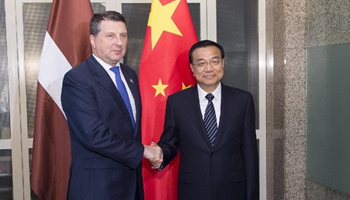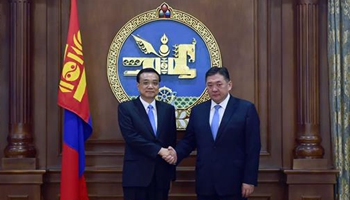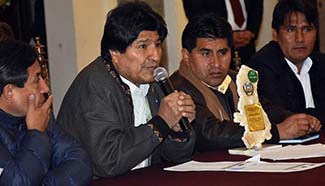by Xinhua Writer Zhang Yongxing
HOUSTON, July 14 (Xinhua) -- The ill-founded award issued by an arbitral tribunal on Tuesday has set a questionable and bad precedent by supporting one country's territorial claims, a U.S. expert has said.
"Although the tribunal claimed that it made no attempt to rule on any question of sovereignty over land territory or to delimit any boundary between the concerned parties, the tribunal has in fact been used to support the Philippines' territorial claim in the South China Sea; the use of the panel for supporting one country's territorial claims has therefore created a questionable and bad precedent," Peter Li, a political science professor with tenure at the University of Houston, said in a recent interview with Xinhua.
On Tuesday, The Hague-based tribunal handling the South China Sea arbitration case unilaterally initiated by the former Philippine government issued its final award, denying China's long-standing historic rights in the South China Sea.
In Li's viewpoint, the tribunal's award is naturally null and void because unlike the Philippines, China's sovereignty over the islands and reefs in the South China Sea has been established in the course of history.
China's rejection of and non-participation in the arbitration proceedings are in compliance with the United Nations Convention on the Law of the Sea (UNCLOS), which, adopted in the early 1980s, was not designed to serve as a territorial dispute settlement mechanism. Arbitration over matters concerning the delimitation of maritime boundaries is beyond the scope of the convention, he said.
He added that the Philippines' intention through such an arbitration mechanism was to resolve the territorial disputes with China in the South China Sea, subject matter outside the scope of Article 287 of the UNCLOS.
Li said that the tribunal should not have been set up in the first place as the judges of the tribunal were already biased before the proceedings even started.
"This lack of judgment and insight on the nature of the arbitration case has irreparably undermined the authority and impartiality of the arbitral tribunal," he said.
The professor blamed the award for further intensifying the tensions in the region and putting regional peace at risk as it will encourage other parties to the dispute to seek a similar approach to buttress their claims to the South China Sea.
"If this happens, bilateral talks to tackle the territorial disputes are more unlikely. A worse scenario is that countries from outside the region shall impose themselves on the region, thus making a peaceful resolution of the dispute even more remote."
Li lashed out at the selective memory of the arbitral tribunal, saying that this undermines its authority.
"By denying China's historic rights claim to the South China Sea, the arbitral tribunal is encouraging a real political behavior that selectively forgets one's past positions on the same issue or the same territorial claims," he said.
Until the 1930s, the United States had never regarded the South China Sea as part of the territory of the Philippines, the professor said, adding that China's resumption of exercise of sovereignty in 1946-1947 over the South China Sea islands, atolls and shoals was never challenged by the United States.
Stressing that the disputes in the South China Sea should be resolved through consultation and talks among the parties in the region, Li praised China for what it has done over the past years to seek a peaceful settlement of the disputes with the parties concerned.











